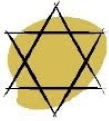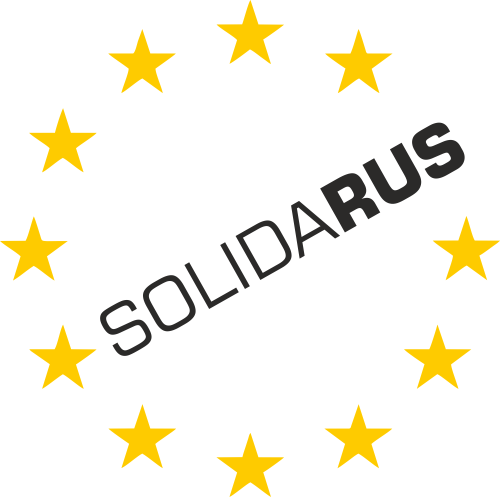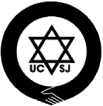The Kremlin’s Political Prisoners: The Case of Sergei Filatov
On March 5, 2020, a Russian-controlled court in Ukraine’s Crimea sentenced Sergei Filatov, a Jehovah’s Witness from Dzhankoy, a town in the north of occupied Crimea, to six year in prison for organizing activities of an extremist organization, which, according to an investigation, consisted of “holding meetings, religious speeches, as well as promoting religious ideas.”
UPDATE. On May 26, 2020, Sergei Filatov lost his appeal. His March 5, 2020, conviction and six-year prison sentence have been upheld. Judge Edward Belousov, of the Crimean High Court, presided. The hearing was held behind closed doors, due to virus-related restrictions. Sergei was “present” via video link from Detention Centre No.1 for Republic of Crimea and Sevastopol.
Filatov’s defense referenced a recent opinion by the UN Working Group on Arbitrary Detention. Although primarily addressing the arrest and detention of 18 JWs in Russia, Filatov’s defense noted the strong language in the Working Group’s opinion that addressed the overall “issue of systematic and institutionalized persecution of Jehovah’s Witnesses” (§78) in Russia:
§71. The Working Group is mindful that this is the third case concerning the Jehovah’s Witnesses in Russia that has come before it over the past 12 months (see Opinions Nos. 11/2019 and 34/2019). All the 18 individuals named in the source’s communications have been charged with various forms of “extremist activities”. Yet, in view of the Working Group, none of the activities described could be construed as such. Moreover, neither has the Working Group been presented with nor can it establish itself any reasons that might justify the limitation of the rights of these 18 individuals under article 18 of the Covenant. The Working Group considers that all the activities that they engaged in were the peaceful exercise of their right to freedom of religion under article 18 of the Covenant. These actions were the sole reason for the arrest of all the 18 individuals and the court proceedings against them.
§81. The Working Group observes that while this is the third case to come before its regular communications procedure on the situation of Jehovah’s Witnesses in Russia, numerous other such cases have been raised through the joint urgent action procedure by the Working Group and other UN Special Procedures (see paragraph 77 above). All these cases concerned the branding of peaceful religious activities of Jehovah’s Witnesses as “extremist activities” which has resulted in arrests and detentions of individuals belonging to this religious movement. Therefore, although the present Opinion concerns the particular circumstances of the named 18 individuals, the Working Group emphasizes that its findings in this Opinion apply to all others in similar situations.
During the appeal, the judge in Filatov’s case flatly rejected the defense’s motion to consider the Working Group’s opinion. The judge replied by saying that the Working Group’s opinion has “no judicial force” in the court, thus he upheld Filatov’s conviction and six-year prison sentence.
Sergei Filatov, a Jehovah’s Witness from Dzhankoy, was accused of organizing activities of an extremist organization, which, according to an investigation, consisted of “holding meetings, religious speeches, as well as promoting religious ideas.”
On February 25, at a hearing in the Dzhankoy District Court in Crimea, a prosecution requested seven years in a maximum security colony for Sergei Filatov, accused of organizing the activities of an extremist organization (Part 1 of Article 282.2 of the Criminal Code of the Russian Federation).
According to an investigation, Filatov “no later than October 13, 2017, carried out organizational activities aimed at continuing the unlawful activities of this organization (Local Religious Organization Jehovah’s Witnesses Sivash), consisted of holding meetings, religious speeches, as well as promoting religious ideas of this organization, using for this purpose a place of his residence.” The evidence presented by prosecutors includes an audio recording of a worship which, according to Sergei Filatov, was his family’s home prayers and Bible readings, and not a part of the liquidated organization’s activity.
Since November 15, 2018, Sergey Filatov has been under a house arrest.
Earlier, on February 11, 2020, prosecutors requested 6.5 years of prison for similar charges for another Jehovah’s Witness Artem Gerasimov in Yalta, Crimea. On the same day, police raided 6 other addresses of Jehovah’s Witnesses in Crimea seizing documents and books including Bible, money, and electronics.
In April 2017, the Supreme Court of the Russian Federation recognized Jehovah’s Witnesses in Russia as an extremist organization and formally liquidated it. In August of that year, all congregations of Jehovah’s Witnesses were put on a list of banned extremist organizations.
On August 17, a court in the northwestern border town of Vyborg banned the Jehovah ’s Witness’ translation of the Bible labeling it extremist.
Russian Jehovah’s Witnesses appealed the ban in the European Court of Human Rights. In addition, the ECHR has received about 40 individual cases of violations of Jehovah’s Witnesses’ rights by Russian authorities.
The Memorial Human Rights Center considers the designation of Jehovah’s Witnesses’ organizations as extremist to be unjustified and in violation both of freedom of conscience and the right of association. The criminal prosecution of followers of this peaceful religion is unlawful and discriminatory.
The total number of Jehovah’s Witnesses currently being prosecuted for their faith in Russia has reached 206. The Memorial Human Rights Center considers that all Jehovah’s Witnesses held in custody or under house arrest to be political prisoners and urges their immediate release. The Memorial Human Rights Center demands that all charges against Jehovah’s Witnesses, on whom other forms of pre-trial restriction have been imposed, be dropped.













